A Timely Chronica
Message from the Director, E. Brilli, PhD
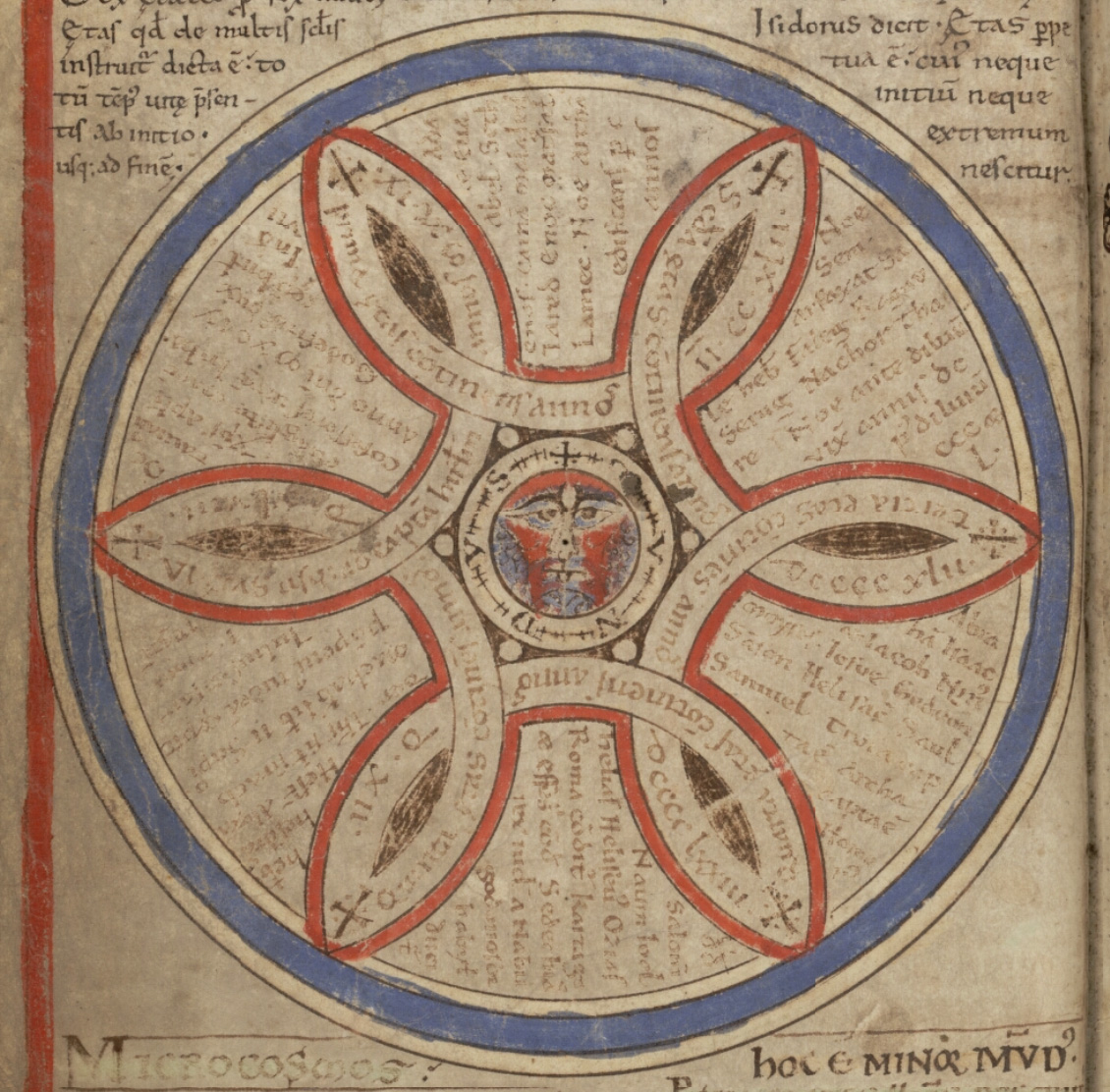
Understanding, representing, and keeping track of time are constant challenges for human communities. Medieval authors provide some of the most sophisticated philosophical, narrative, and visual attempts to catch this elusive fluid of togetherness. Whether linear or circular, eschatological or open-endedly annalistic, God-driven or in the realm of capricious Fortuna, tamed in monumental parallel histories or compressed in exemplary vitae, depicted in standardized calendars and genealogies or astonishingly creative images, time stayed at the centre of medieval wondering and worry. At the Centre for Medieval Studies, we welcome 2023 by inaugurating the first humble quire of a new digital Chronica.
Among this month’s News and Stories, we are thrilled to announce that CMS will join the Collaborative Specialization in Food Studies in 2023-2024 and that many CMS faculty members and students will participate in the research project Hidden Stories: New Approaches to the Local and Global History of the Book. Generously funded by the Mellon Foundation, Hidden Stories involves a collaboration of 130 researchers from 60 institutions across the world. We are also delighted that alumnus Professor Gur Zak will deliver the Alumni Lecture in April 2023, and shares with us how his personal and scholarly path crossed that of CMS years ago.
Zak’s lecture is part of the new series of Events that, under the label of CMS Convivium, will rhythm our academic year and intellectual life by bringing us together to listen to and discuss talks given by Faculty, Students, Postdoctoral Fellows, Alumni, and visiting Scholars. The CMS Convivium will start on January 13, with Professor Sebastian Sobecki’s lecture on News from the Archive: An Unknown Personal Manuscript by Thomas Hoccleve and will be preceded by the first EDIA Workshop held at CMS (in the framework of MST1003). All CMS Convivia are offered in a hybrid format; we warmly invite faculty, students, and friends to attend in person or online. See details on our Events page.
A chronica would not be such without celebrating Faculty, Student, and Alumni News and Publications. While similar lists are non-exhaustive by nature, they will provide a first insight into the variety of research activities promoted by our community. Please do not hesitate to contact us and share your important news.
It would only succeed in its scope by keeping alive the Memoria of those who contributed to its making. As you all know, CMS recently suffered three terrible losses, and we invite everyone to now take the time to devote their recollection to these members who are no longer with us and their families.
Finally, a calendar-like list will remind us of Other Events organized by partner institutions and Important Dates. The most important one this month is the submission of the Paper (draft) by students who are pioneering their Special Field Exams under the new guidelines. Join me in wishing them good work and thanking Supervisors and Advisory Committees for their timely feedback. My thoughts are also with all the students preparing for their Modern Language Exams as well as those who are about to defend their dissertations. May these important milestones soon become pleasant memories of your years at CMS. Have a good reading and a great time.
News and Stories
Culinaria: A New Collaborative Specialization in Food Studies
Food and drink play a critical role in human societies, so often the object of current social, political, and cultural discussions. How do these topics relate to Medieval Studies? With CMS joining the “Culinaria” Collaborative Specialization next academic year, three members of CMS Community share their insights.
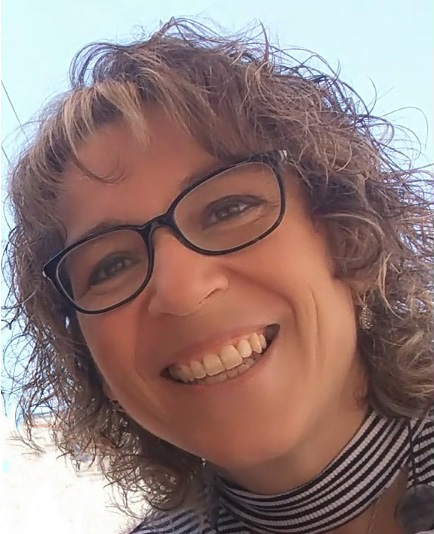
This Winter, Yolanda Iglesias (Associate Professor, CMS/Spanish and Portuguese) teaches MST 3604 The Culture of Food, Cooking and Diet Through Daily Life and Tradition in Medieval Europe, which will become part of the new CS. Professor Iglesias, what’s on the menu?
The course aims to search the field of culinary culture through daily life during Middle Ages and explores how food is connected with religion, family, law, social groups, and economy. We examine cuisine and cooking as relevant areas of research to understand society during the Middle Ages, analyzing primary sources to establish associations between text and historical context. Exploring cookery books, recipe collections, literature, iconography, and legal documents, we will learn about Medieval foodstuff, food preparation, table habits, and professional cooking.
We will study for example, The Registrum Coquine. A Medieval Cookbook, a collection of 74 recipes written in the first half of the 15th century by Johannes Bockenherm, an ecclesiastic at the service of Pope Martin V. This manuscript is very peculiar; unlike other medieval cookbooks, recipes are focused according to different social classes, its principal objective being to highlight foodstuffs that best suit each social group and nationality.
Another recipe book, The Book of Sent Soví. Medieval Recipes from Catalonia, is an anonymous collection of 72 practical recipes with an appendix of 68 more. The 14th-century cookbook is the oldest surviving culinary text in Catalan, an incredible source of information on the cookery of the territories of the Crown of Aragon before the arrival of products from the Americas generated new innovations.
We will investigate the Siete Partidas, a Castilian legislative code first compiled during the 13th-century reign of Alfonso X of Castile. With the purpose of creating a homogeneous normative law for his kingdom, Alfonso’s code deals with constitutional, civil, commercial, criminal, and prosecution laws, and includes a large number of foodstuffs regulations.
Also composed by Alfonso X is the literary text, Las Cantigas de Santa María, a late-medieval collection of over four hundred poems. No other similar source illustrates, as an encyclopedia, the daily life of people in the Middle Ages. We will analyze both the text and iconography of more than one hundred poems which demonstrate how people eat and cook.
Through the close reading analysis of these medieval literary legacies, we will contribute to the food studies discipline with a critical interpretation and contextualization of medieval society.
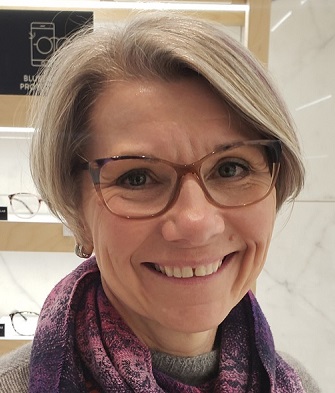
CMS PhD student Nora Thorburn shares her research on the medieval medicinal uses of culinary ingredients
What brought you to the Centre for Medieval Studies and how did your interest in medieval ingredients and medicine develop?
I have long had an interest in history despite completing a Bachelor of Science in Pharmacy. I had often said that if I were to win the lottery, I would study history, but at some point realized that a windfall wasn’t required to make that dream come true. After soaking up almost every undergrad course on medieval history available at U of T, I applied to the Centre and was accepted. Here, my love of history joined my love of science, and I realized that the confluence of those two interests was where I was happiest. Thanks to Dr. Everett’s direction, I was introduced to the collection of medical manuscripts at the Stiftsbibliothek in Switzerland, and the pieces fell into place.
What are some issues with progressing text-based research into a practical examination?
I study predominantly antidote recipes, which are complex multi-ingredient compounds that often treat multiple medical complaints. The recipes sometimes list only the ingredients; often missing are the portions, dose, preparation, and the part of the plant to be used. The instruction seems simple enough, for instance, “make into a powder,” until you wonder how to powder a carrot! As well, ambiguity can arise from differences in spelling or the use of a local name for a plant, not all of which have been adequately researched. I have spent many hours deciphering recipes to determine which plant is being referenced. Often times the medieval scribes or compilers were themselves confused, resulting in conflicting information about an ingredient’s identity. All these challenges underline how large the role of unwritten knowledge - handed directly from practitioner to student - was in the practice of medicine in this period.
What is the relationship between studying early medicine and modern uses?
I try hard not to judge medieval medicine through a modern lens, though I think there are commonalities between what each holds as valuable. There was concern that the physician should not harm the patient. Though not in circulation in the 9th century in Medieval Europe, the principles of the Hippocratic Oath can be seen in texts addressing appropriate behavior of doctors. Medieval patients were just as interested in being healthy and treating any anomalous symptoms as is today’s society and seemed to prefer to use medicines to treat ailments. In fact, medical texts in circulation were filled with simple recipes directed at laypeople. Much like today, diet was seen as a way to maintain health and stave off disease. It seems that doctors have been advocating a healthy lifestyle for as long as we have been ignoring their advice in this regard.
While many of the specific medicines from the Middle Ages have fallen into disuse, the idea that a compound introduced into the body can modify how the body functions, and through that action cure disease or eliminate symptoms, is still very much at the centre of present medical treatment. The most common ingredient I see in studying antidotes is pepper, typically black pepper, and many of the other ingredients used are considered herbs and spices today.
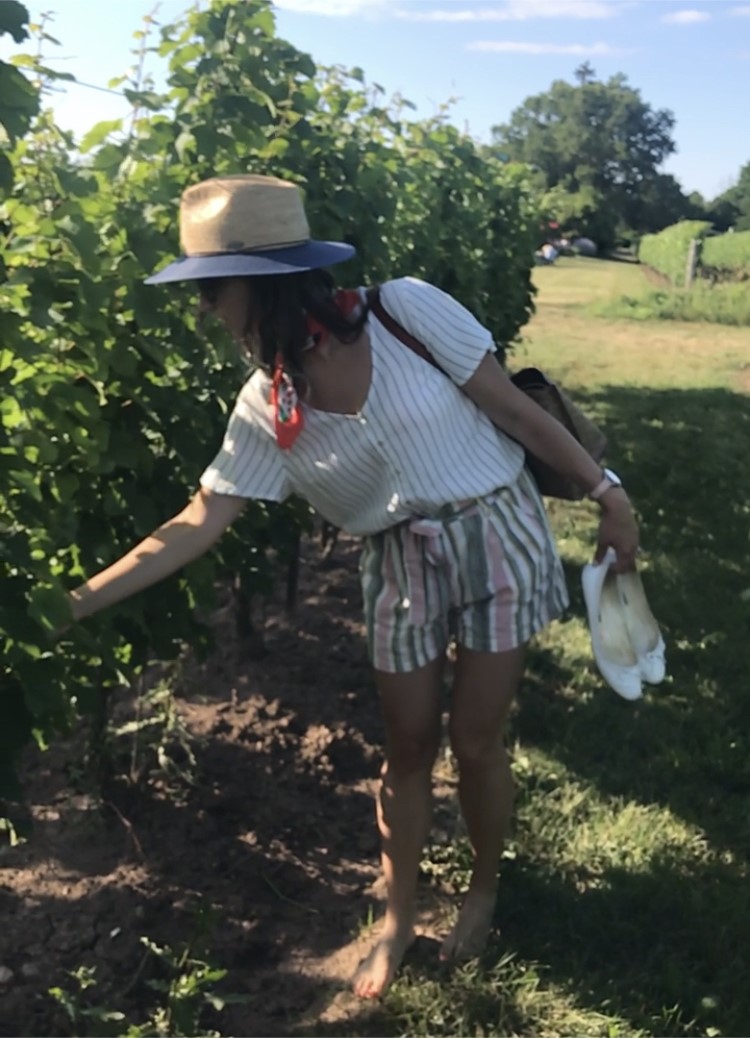
CMS PhD student Olena Karbach tells us how she is exploring two of her great loves: Latin and wine
What brought you to CMS and how did your research interests develop?
I received invaluable advice from a librarian who said that if I wanted to work with rare books, I needed to know Latin. I took this advice seriously and studied Latin at CMS while working as an Academic Librarian, eventually applying to the PhD program. Being a librarian, I initially wanted to focus on instructional manuscripts with images as an extension of my professional skills, art history background, and future career aspirations of working in museums or libraries. A Freudian slip led to a different path when Dr. Shami Ghosh asked what I liked, and before I could compose some more dignified, academic answer, I blurted out; “booze.” My grandmother made wine and jams, and pickled everything. She always said, “don’t cook or plant seeds when you have wrathful thoughts or you’ll poison people,” so I always understood that nourishment preparation was beyond a mechanical act. Intertwined with lore, spirit, culture, and wonder, food and drink are to be treated with reverence.
What drove alcohol production in the Middle Ages? How does it relate to religion, geography, culture, and social class?
Specialized vine cultivation was practiced by both secular and ecclesiastical producers, each establishing very extensive infrastructure for this purpose. Wine, necessary for celebration, was not always the primary driver for large-scale cultivation. Alcoholic beverages are a ubiquitous commodity across social class and regional boundaries, playing a role in nearly every sphere of human existence: nutritional, medical, religious, cultural, and economic. From the High Middle Ages onwards, wine became a significant factor in local economies, accounting for more than half of municipal revenues in German cities, and had a great impact at various levels of society from monasteries and nobility, physicians, wealthy urban merchants, to peasant producers.
What do you hope to learn and share by studying wine and winemakers in medieval Germany?
By the 13th century, viticulture became a more self-aware and specialized industry, which contributed to the changing status of wine. I am exploring the symbiotic relationship between the socio-cultural structures of wine-producing towns. How did viticulture shape the society and the culture of the region? How were the socio-economic structures of medieval Western Germany an influence? I’m interested in exploring themes of prestige, conspicuous consumption and status, the transition of Rhenish wine into a luxury commodity, and the notions of taste and quality. At the nexus of wine production & consumption, quality is one of those elusive characteristics which is as difficult to define today as it was in the Middle Ages. What was considered ‘good wine’ in German-speaking regions? Did medieval people care about the taste and class of wine the way we do today, and in what way?
Are there any ancient methods, ingredients, and processes that continue into modern production?
In the Later Middle Ages as the climate cooled down, it became more difficult to ripen the grapes, resulting in more sour wine. The labour-intensive strategies around increasing the quality of wine to ensure profitability became more vital. In fact, the principles of high-quality wine production which were formulated in the 20th century were created on the basis of methods developed in the 15th century.
Hidden Stories: A New Research Project
U of T’s Hidden Stories: New Approaches to the Local and Global History of the Book project takes manuscript examination into a new chapter of research, discovering stories beyond the text by using geography, biology, and digital studies. Generously funded by the Mellon Foundation, the work is led by UTM Vice-President and Principal Alexandra Gillespie, Suzanne Akbari, and UTL IT Director Sian Meikle, and features 130 researchers, including CMS student Cai Henderson.
Suzanne Akbari, co-principal investigator, Professor of Medieval Studies at the Institute for Advanced Study at Princeton, and former CMS professor and Director, tells us more about the collaborative project.
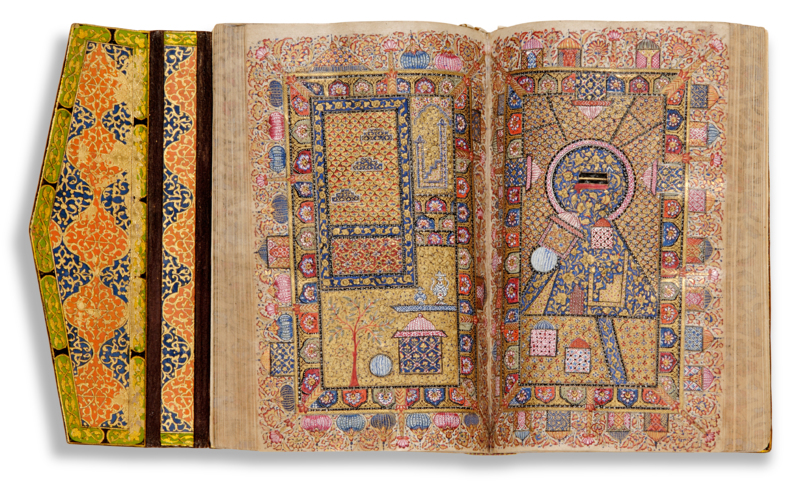
This project uses new processes to discover treasures and stories from the past; why is this relationship important?
Separating humanities research from that of the sciences can ultimately hinder substantial collaborations. Over the past decade and a half, The Centre for Medieval Studies has been involved in supporting digital studies research, resulting in funding and joint initiatives supporting Digital Medieval Studies. The very same methodology of building bridges across U of T is used by the Old Books, New Science Lab to develop relationships with engineers and computer scientists, as well as chemists and biologists working on research fields involving the study of pigments and inks, fungi, and insects. In all of these collaborations, humanistic questions centered on the history of the book – and the people who crafted, read, and preserved books – drive the research, putting digital studies and scientific methods in the service of medieval historical studies.
Is there a common thread running through these manuscripts and books; what types of materials and processes were significant for the culture to preserve and share?
On the one hand, we’ve discovered an amazing variety of materials and processes in the manuscripts and early printed books we study, from palm-leaf manuscripts wrapped and tied in a cloth binding, to writing inscribed on birchbark, and codices written on goat- or calfskin, all bound in a wide variety of formats. On the other hand, there is a common thread in terms of production and use. Researchers from The Book and the Silk Roads project and in the project’s second phase, Hidden Stories, recover knowledge about the craft practices that were used to make these books. For example, they demonstrate the ways in which gatherings of pages were sewn together and how bindings were stitched, using techniques that are also found in handmade clothing (especially socks!) of the period. They also show how they were used: ritual or other ceremonial practices that exhibit books as more than objects. They were, at least in some cases, treated as and thought of as members of their community of origin.
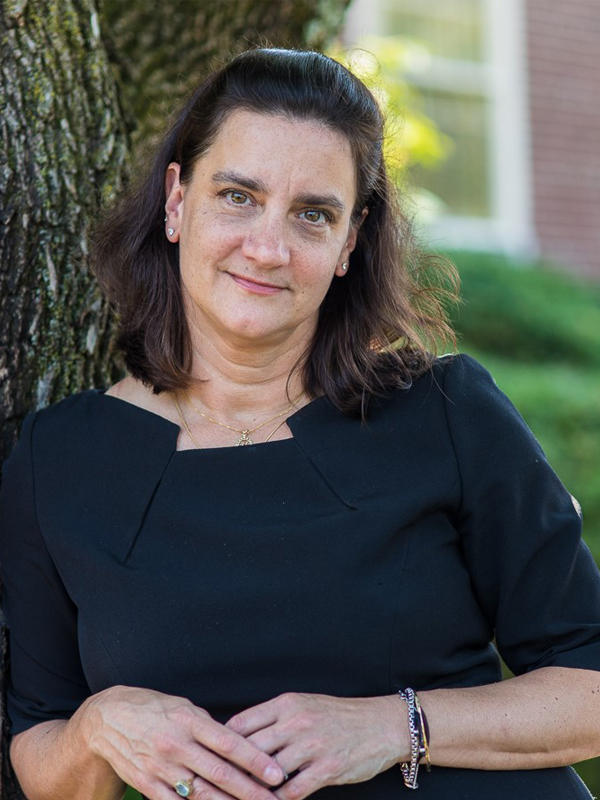
How did your time at the Centre for Medieval Studies influence your current research?
I became involved at CMS immediately upon joining U of T as an assistant professor in 1995, drawn in by the interdisciplinary nature and potential to work across adjacent fields. Mediterranean Studies proved to be a particularly fruitful way of framing some of the work happening at CMS, and Ethiopic Studies offered a way to further widen our frame of reference. East Africa continues to be a key research area in The Book and the Silk Roads and Hidden Stories projects. I can’t imagine this wonderful collaborative project being hatched anywhere else in North America other than at Toronto’s Centre for Medieval Studies.
What are you most looking forward to as this project continues?
While The Book and the Silk Roads project had a wide geographical range, Hidden Stories goes even further, drawing in North and South America. I’m particularly excited about foregrounding aspects of our research methodology that have become increasingly important. As we have developed collaborations with Indigenous partners – the Mississaugas of the Credit First Nation for our research group at U of T, and the Munsee Delaware Nation for those of us at the Institute for Advanced Study in Princeton, NJ – we have changed our way of approaching the book, and the way we develop the relationships that are fundamental to our project. This work with MDN and other Lenape communities has historical value and supports Lunaape language revitalization. I look forward to sharing more about this aspect of Hidden Stories in the coming months, and more about book history, including wampum use as a form of documentary culture.
Visit the IAS website for more information about Munsee Delaware collaborations, including an events list and online resources.
Spotlight: Professor Gur Zak’s upcoming Alumni lecture
CMS Alumnus Gur Zak, Associate Professor of Comparative Literature and Romance Studies at the Hebrew University of Jerusalem, and Head of the Institute of Literatures, will give the 2023 CMS Alumni Lecture on April 14. Prof. Zak speaks to CMS Chronica about his interdisciplinary journey, and his new book and research on consolation and compassion.
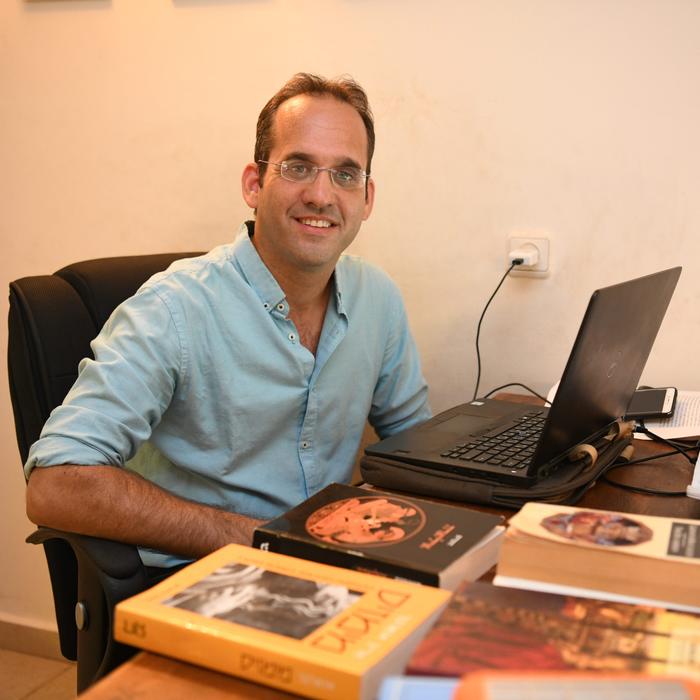
A student at Tel Aviv University, Gur Zak attended CMS Alumnus Professor Aviad Kleinberg’s advanced seminar on “Mystical Movements of the Later Middle Ages.” Captivated by Kleinberg’s interdisciplinary approach to the study of medieval social movements, bringing together literature, philosophy, sociology, and anthropology, Zak was directed by Kleinberg to CMS and began his studies with Brian Stock.
Zak’s interest in the ethics of reading began immediately following Stock’s seminar on “Augustine’s Early Dialogues,” and book, After Augustine: The Meditative Reader and the Text (University of Pennsylvania Press, 2001). The medieval reception of the ancient tradition of spiritual exercises, textual communities, and ultimately Petrarch’s relationship to these gradually developed into Zak’s dissertation and eventual book Petrarch’s Humanism and the Care of the Self (Cambridge University Press, 2010), and continues to be the basis of his scholarly work today.
Of his time here, Zak says: “Beyond the privilege of working with Brian, CMS was for me an ideal place due to its truly interdisciplinary nature. I came to the Centre as a history major and was offered here the opportunity to study the Middle Ages from a variety of disciplines and perspectives. I took courses in medieval philosophy, textual criticism, historical anthropology, and literature and literary theory – the discipline to which I was ultimately mostly drawn. This breadth of perspectives and approaches is undoubtedly one of the Centre’s greatest gifts to its students and one which I continue to cherish.”
Now a Professor at the Hebrew University of Jerusalem and the Head of the Institute of Literatures, Zak teaches in the Departments of Comparative Literature and Romance Studies, forever instilling the interdisciplinary spirit fostered at CMS and looking for ways to bring the Middle Ages into dialogue with the present. He expresses; “It is this vigilant dialogue between past and present to which I became aware at the Centre and which I continually try to bring to both my research and teaching.”
Zak perpetually ponders; “why does literature matter?” specifically in relation to the Tre Corone and their value of literature. After his first book which explores how for Petrarch reading and writing are spiritual exercises, Zak further engaged in the idea of literary value in relation to Boccaccio. In his newest book, Boccaccio and the Consolation of Literature (PIMS 2022), Zak discovered an important difference between Petrarch’s and Boccaccio’s appropriation of antiquity, realizing: “when Boccaccio thinks about the value of literature the term he has in mind is consolatio or the Italian consolazione, and therefore that a study of the value of literature in Boccaccio is essentially a study of the consolation of literature and the way he relates to the venerable medieval consolatory tradition.” He hopes to enrich our understanding and consideration of Boccaccio in medieval and Renaissance consolatory literature and generate further investigation between ethics and literature.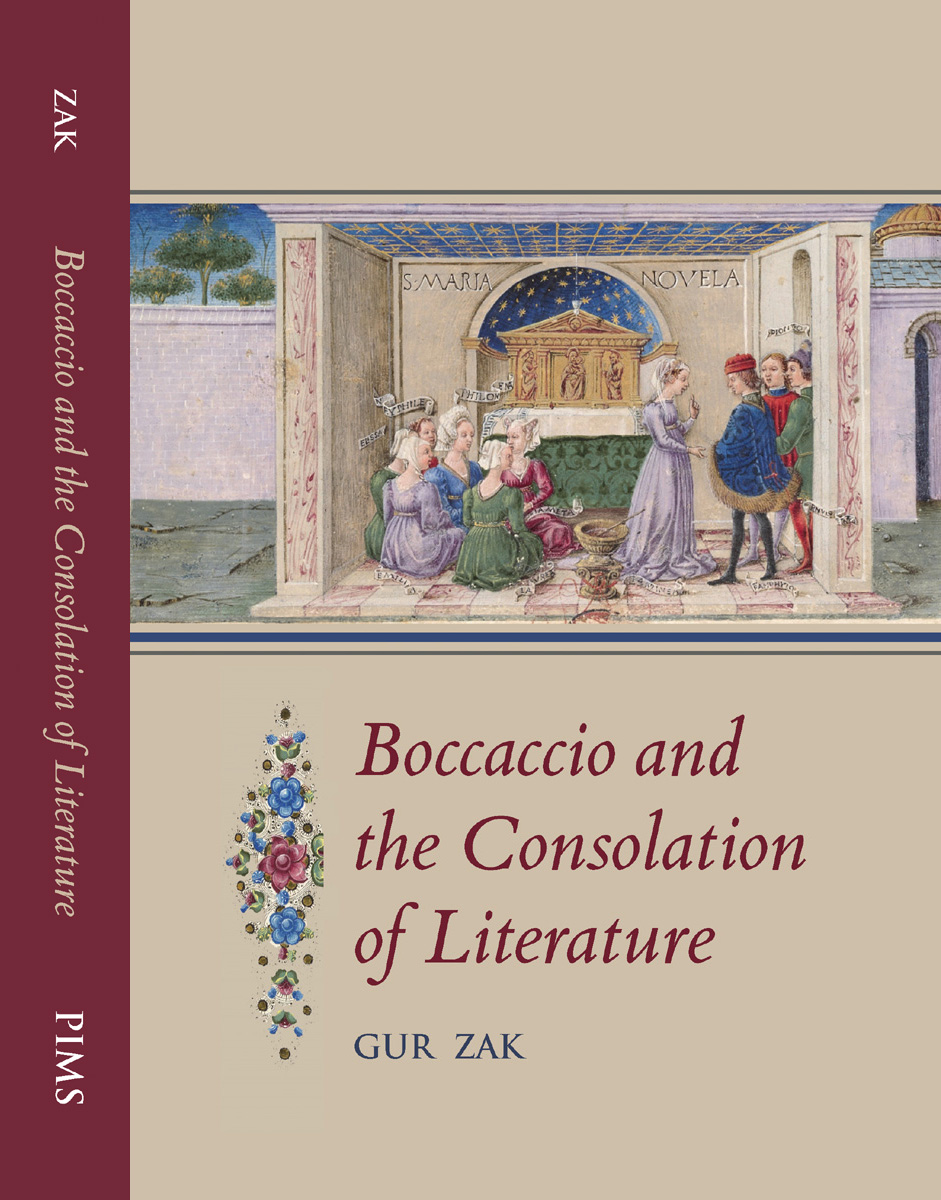
The Centre for Medieval studies welcomes Gur Zak to the April 14thConvivium, where he will discuss his book and how Boccaccio transformed the Boethian consolatory tradition, his new research on the emotion of compassion, and how these literary studies can contribute to studies on the history of emotions.
In his upcoming CMS Alumni lecture (April 14), Zak will draw from his most recent book to discuss how Boccaccio transformed the Boethian consolatory tradition. Zak will also participate in the 5th International Seminar on Critical Approaches to Dante (April 12-13) on “Emotion and Community” organized by Professors Brilli, Robins, and Ingallinella among others, and present there his new research on Literature and History of emotions.
Read the full interview with Gur Zak
In Memoriam
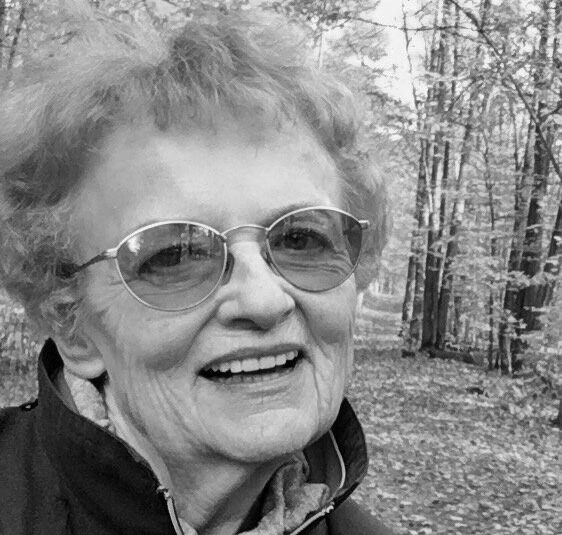
Jennifer Rigg
Jennifer Rigg (née Dickie), poet, author, and wife of George Rigg was born in India in 1939 and died peacefully in Toronto this past October. After having completed her studies in India, Singapore, York, and St. Andrews, Jennifer met her future husband George at Oxford. The two soon married, moving to Toronto in 1968. While George taught and conducted his research at CMS between 1968 and 2019, Jennifer published numerous novels and articles of verse. All the while, the two were inseparable lovers of nature and hiking.
In July, Jennifer made a generous donation to the Dictionary of Old English, founding the George and Jennifer Rigg Editorship. Jennifer will be missed as an integral member of CMS’s founding community.
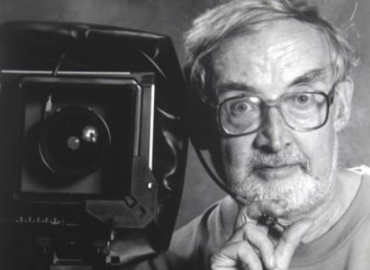
Harry Roe
Harry Roe was born in Boston, MA in 1933, and passed away this past November 26, 2022.
He attended the Boston Latin School where his strong academics earned him a full scholarship to Harvard University. He served his country in Germany as a Voice Interceptor during the Korean War, and returned to Harvard to complete his PhD in Linguistics, focusing on the Faroese language. After teaching at Harvard, he joined the University of Toronto, where he was a professor at the Centre for Medieval Studies and the Department of German. Harry’s specialty was in medieval and earlier languages, particularly Irish and Norse. With dear friend, Ann Dooley, he completed the first full translation of Acallam na Senórach, the largest literary text surviving from 12th century Ireland, published in translation as Tales of the Elders of Ireland.
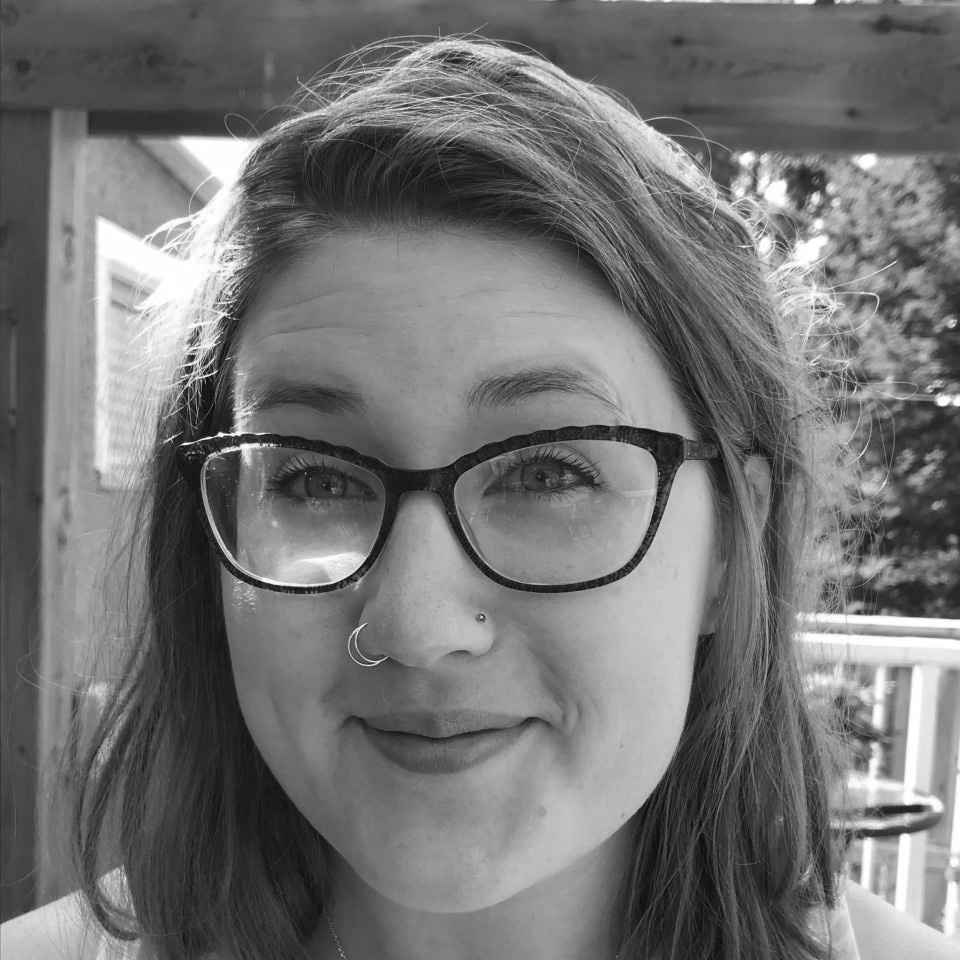
Ariel Brecht
It was with the most profound sadness that we must announce the passing of Ariel Lee Brecht on January 2.
Ariel joined the medieval studies doctoral program in September 2022 and was a JHI junior fellow researching manuscript studies, textual technology, and sermon studies. Her project, Accessing the Written Word: Finding Devices in Late Medieval Personal Preaching Aids is a bright and faithful reflection of Ariel’s vibrant personality that we will all miss. According to her sister, Alyssa, “Ariel loved history, learning, and discovering. She wanted to make the world a better place, and school gave her the space to flourish academically.” This is how everyone at CMS knew Ariel and will remember her.
We extend our heartfelt condolences to Ariel’s family and her partner Kyle. Our thoughts are with them, as well as with her friends, fellow students, and colleagues. We join them in mourning her loss,
CMS Convivium
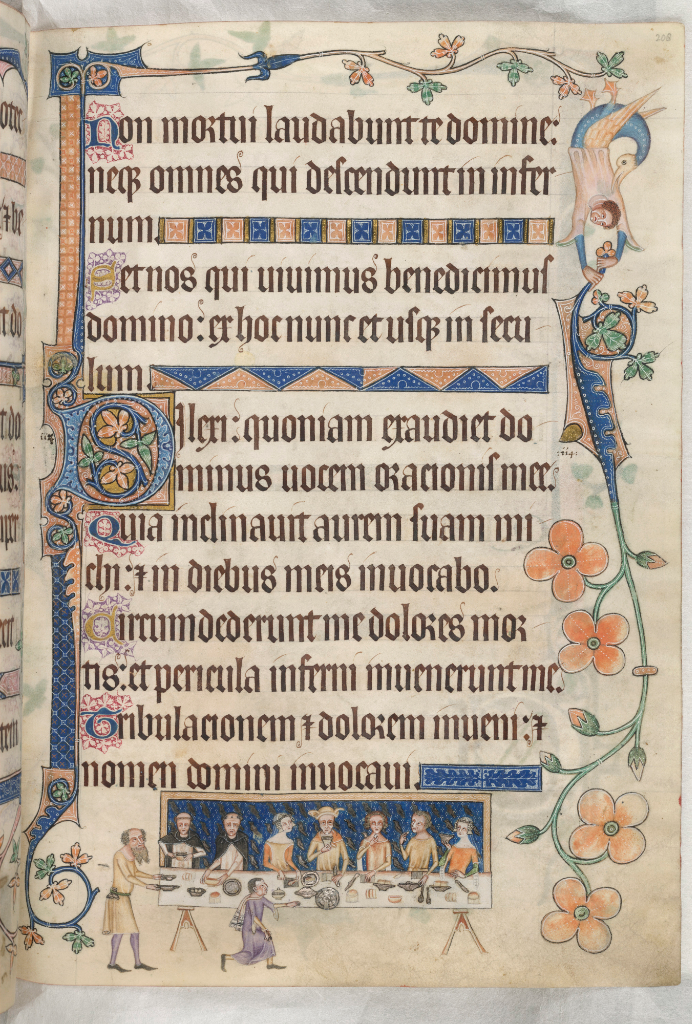
The Conferences, Lectures, and Visitors Committee is pleased to introduce the CMS Convivium, a new series of lectures that aims to foster scholarly exchanges and the intellectual community within CMS and associated bodies. It offers a space to learn about in-progress research and works, showcase faculty, alumni, and community accomplishments, provide an arena for advanced PhD students to present their research topics, and host joint events and lectures by visiting scholars. The name “convivium,” or banquet, echoes the long-lasting analogy between physical and spiritual nourishment, as well as the rituals traditionally interweaving the two.
A bi-weekly hybrid event, the Convivium takes place Fridays at 2:30 pm in person and via Zoom, October through December and January to April, beginning this Friday, January 13, 2023 (see events above). A light lunch precedes all meetings which students and faculty are warmly invited to attend.
Upcoming:
January 13
Equity, Diversity, Inclusion, and Accessibility Workshop
TIME: 11 am-1 pm
ROOM: LI 301
MST 1003’s EDIA workshop will include presentations by CMS Placement Committee faculty, the CMS EDIA officer Prof. Shami Ghosh, and SEC Chair Greg Carrier, as well as exercises on unconscious bias. All are warmly welcome to attend.
Sebastian Sobecki - News from the Archive: An Unknown Personal Manuscript by Thomas Hoccleve
TIME: 2:30-4:30 pm
ROOM: LI 301 or join on Zoom
15th-century poet Thomas Hoccleve, a professional clerk in the Privy Seal Office, his handwriting the best known of all medieval English scribes, may have been responsible for London’s emerging literary scene. This talk will reveal, for the first time, an unknown personal manuscript by Hoccleve.
A reception will be held after the event in the Great Hall at 5 pm.
January 20
Course Design and Syllabus Workshop
TIME: 2:30-4:30 pm
ROOM: LI 301
Facilitated by Dr. Michal Kasprzak, a professional course developer and the Assistant Director of U of T’s Centre for Teaching Support and Innovation, this workshop is open to all interested faculty and students, especially those who are teaching or will teach a standalone course and/or seeking to develop a teaching portfolio for the job market.
Visit the website for important details and registration information.
February 10 M. K. Hurley (Ohio University, Visiting) Elegiac Worldbuilding: The Poetics of Time in Early Medieval English
February 17 N. Discenza (University of South Florida, Visiting) Curiosity (Almost) Killed the Monk: Epistemic Emotions in Early Medieval England
March 3 R. Trilling (University of Illinois, Visiting) Translatio medicinae: Mediterranean Sources in an English Climate
March 10 M. Maschio (CMS, PhD) Weaving Greek threads into French Romance: commercial networks and technical language in the Roman de Thèbes (c.1150) and the Roman d’Énéas (c.1160) & E. Plesnik (CMS, PhD) Et in otio de negotiis cogitare’: Imperial leisure and place-making in Petrarch’s Milan correspondence
March 24 C. Laird (CMS, Post-doctoral fellow) The Hidden Tradition of Old English Riddles
April 14 G. Zak (Hebrew University of Jerusalem, CMS alumnus) Transforming Consolation: Empathy, Particularity, and the Boethian Tradition in Boccaccio’s works (CMS Alumni Lecture)
April 21 S. Bruce (Fordham University, visiting) Origen Issues: The Reception of a Renegade Greek Theologian in Early Medieval Europe (Annual O’Donnell Lecture)
Publications
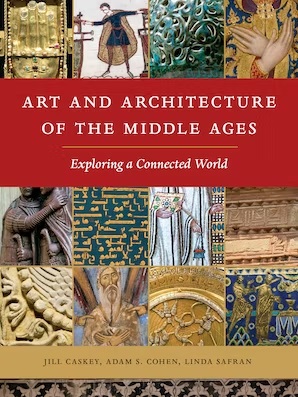 Jill Caskey, Adam S. Cohen, and Linda Safran
Jill Caskey, Adam S. Cohen, and Linda Safran
Art and Architecture of the Middle Ages: Exploring a Connected World
Cornell University Press
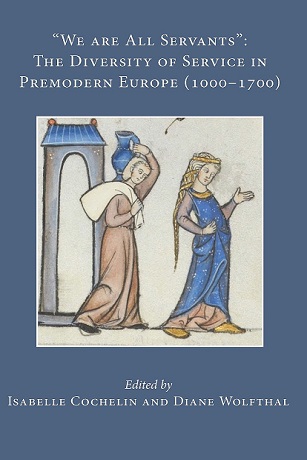 Edited by Isabelle Cochelin and Diane Wolfthal
Edited by Isabelle Cochelin and Diane Wolfthal
“We are All Servants”: The Diversity of Service in Premodern Europe
Iter Press
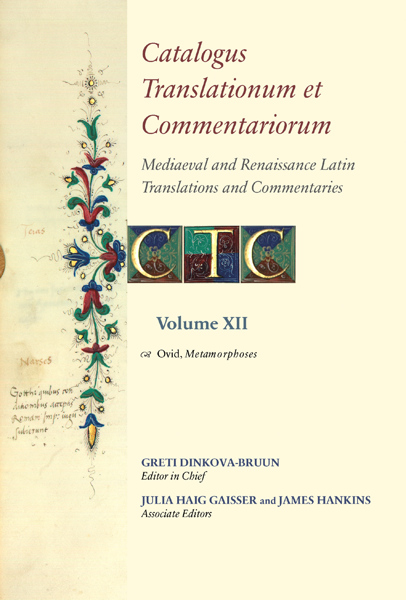 Greti Dinkova-Bruun, editor-in-chief; with editors Julia Haig Gaisser and James Hankinst
Greti Dinkova-Bruun, editor-in-chief; with editors Julia Haig Gaisser and James Hankinst
Catalogus Translationum et Commentariorum, vol. 12 Mediaeval and Renaissance Latin Translations and Commentaries: Annotated Lists and Guides, volume 12 Ovid, Metamorphoses
Brepols
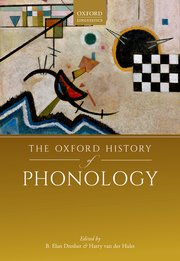 Edited by B. Elan Dresher and Harry van der Hulst
Edited by B. Elan Dresher and Harry van der Hulst
The Oxford History of Phonology
Oxford University Press
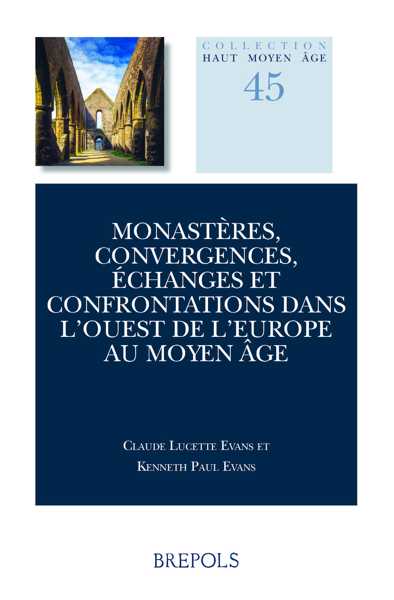 Edited by Claude Lucette Evans and Kenneth Paul Evans
Edited by Claude Lucette Evans and Kenneth Paul Evans
Monastères, convergences, échanges et confrontations dans l’Ouest de l’Europe au Moyen Âge
Brepols
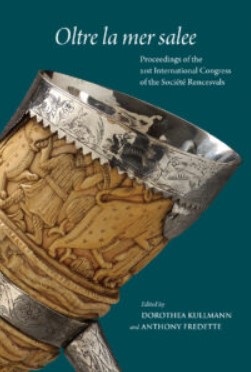 Edited by Dorothea Kullman and Anthony Fredette
Edited by Dorothea Kullman and Anthony Fredette
Oltre la mer salee: Proceedings of the 21st International Congress of the Société Rencesvals Pour l’Etude Des Epopees Romanes
PIMS
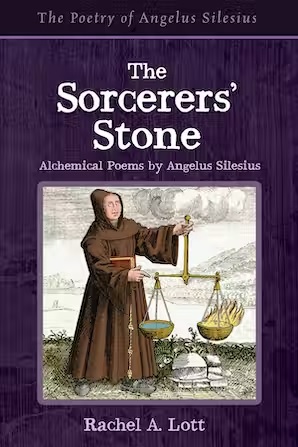 Rachel Lott
Rachel Lott
The Sorcerers’ Stone Alchemical Poems by Angelus Silesius
Wipf and Stock
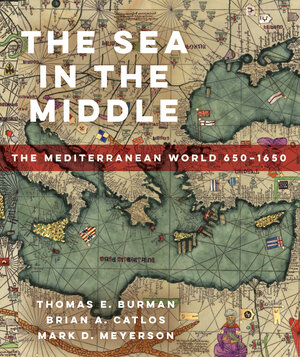 Thomas E Burman, Brian A. Catlos, and Mark D. Meyerson
Thomas E Burman, Brian A. Catlos, and Mark D. Meyerson
The Sea in the Middle The Mediterranean World, 650–1650
University of California Press
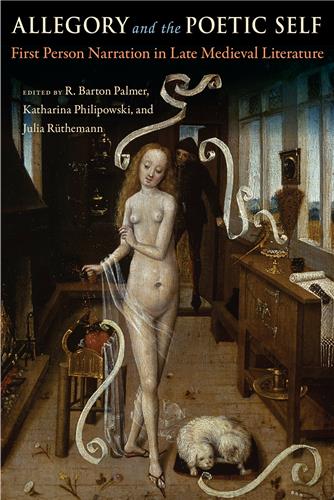 Edited by R. Barton Palmer, Katharina Philipowski, and Julia Rüthemann
Edited by R. Barton Palmer, Katharina Philipowski, and Julia Rüthemann
Allegory and the Poetic Self First-Person Narration in Late Medieval Literature
University Press of Florida
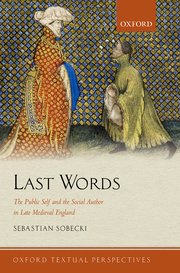 Sebastian Sobecki
Sebastian Sobecki
Last Words: The Public Self and the Social Author in Late Medieval England
Oxford University Press
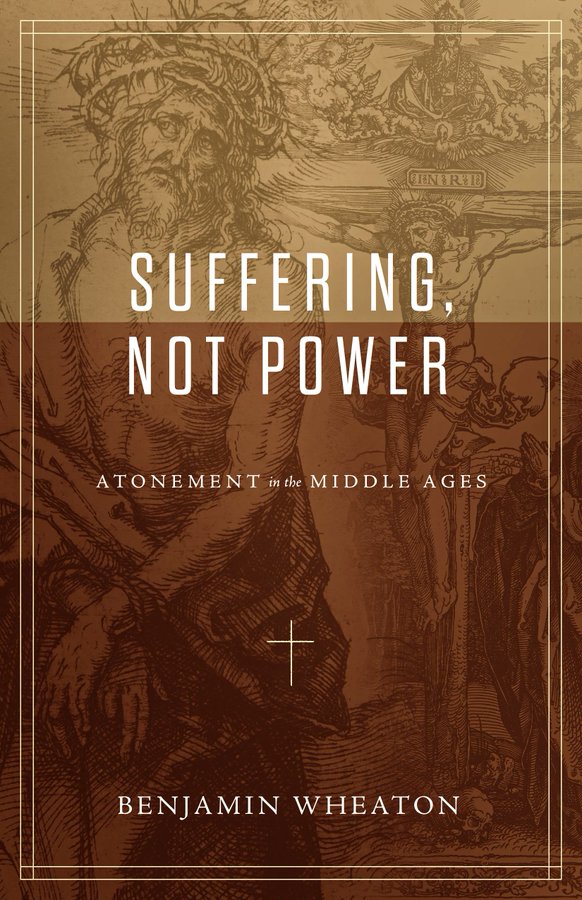 Benjamin Wheaton
Benjamin Wheaton
Suffering, Not Power: Atonement in the Middle Ages
Lexham Press
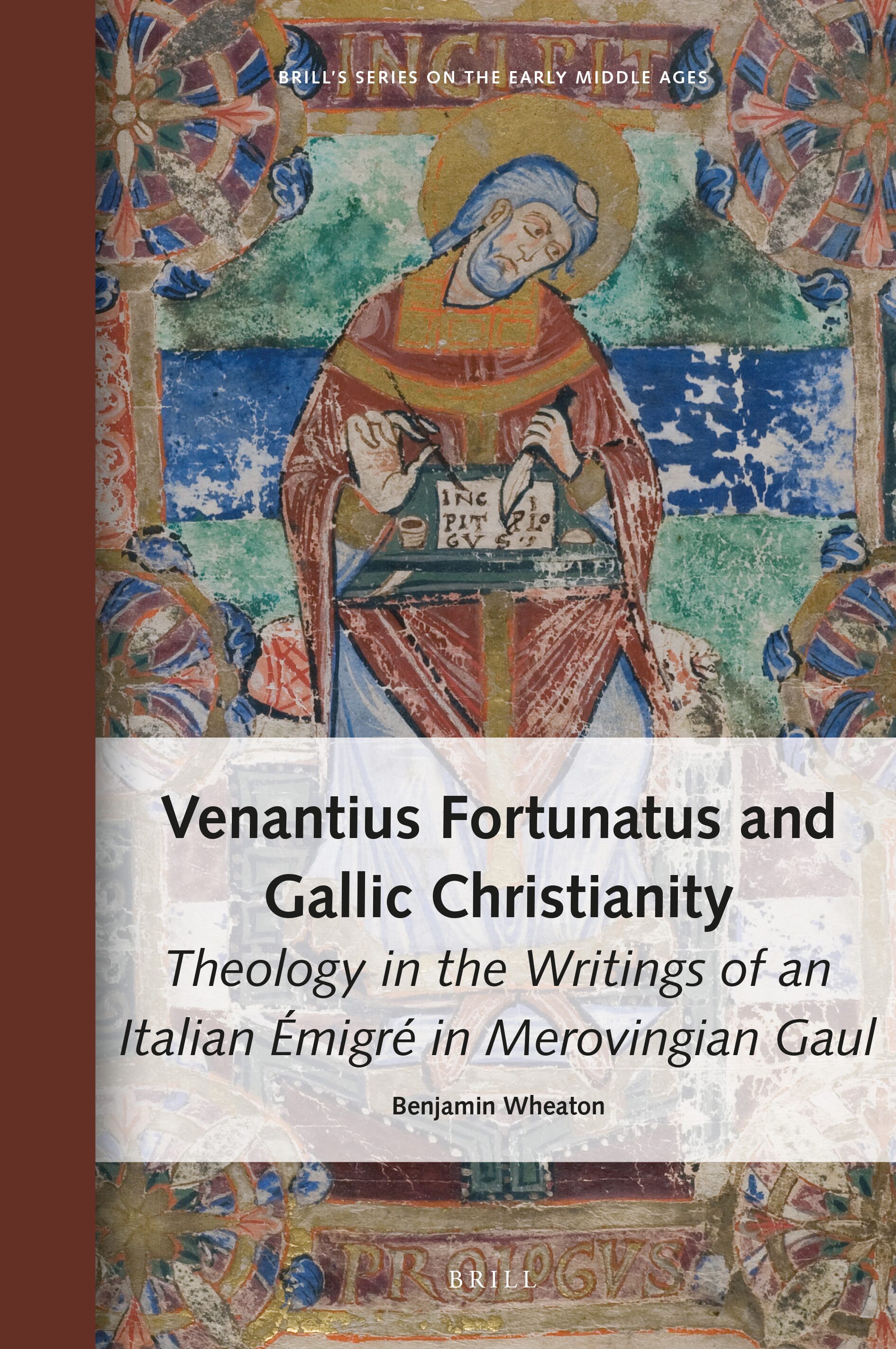 Benjamin Wheaton
Benjamin Wheaton
Venantius Fortunatus and Gallic Christianity Theology in the Writings of an Italian Émigré in Merovingian Gaul
Brill
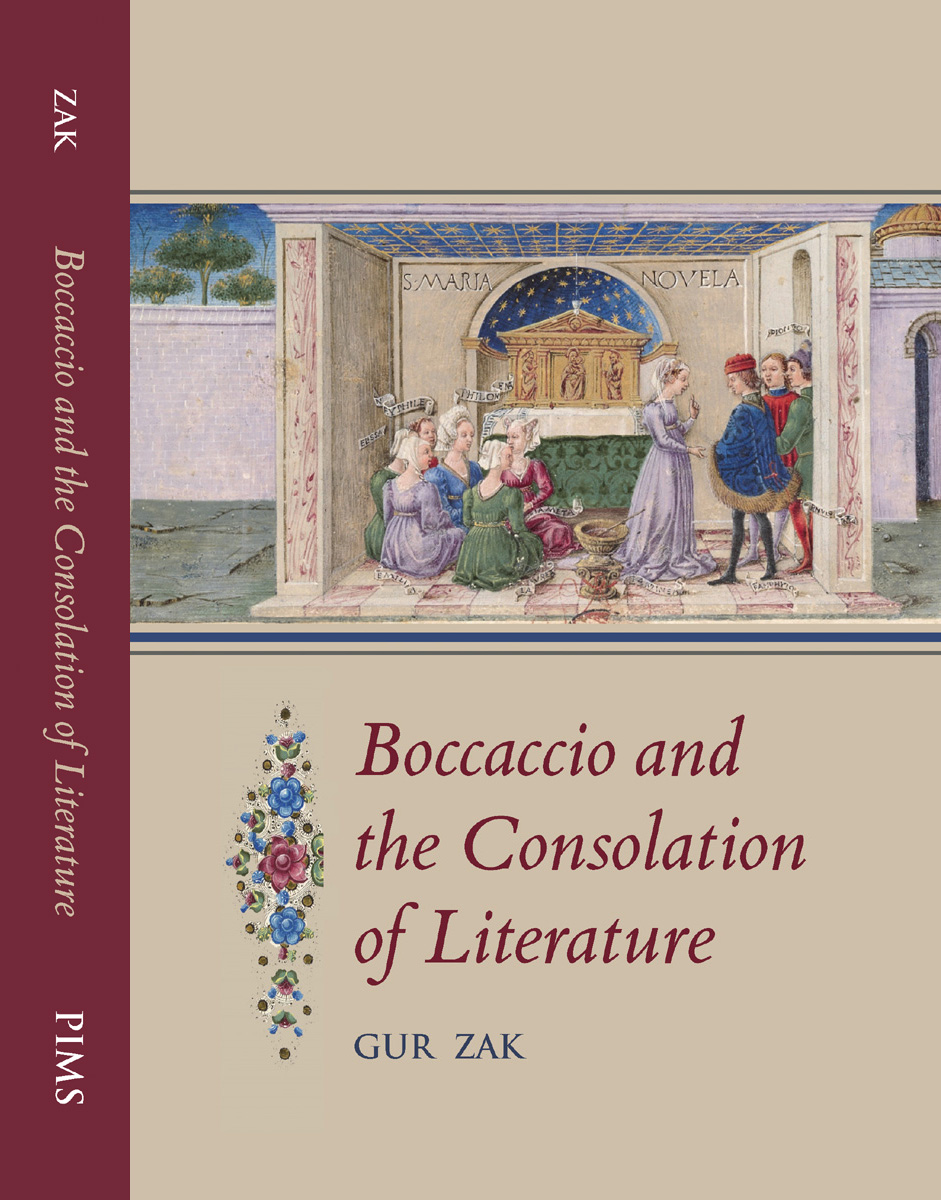 Gur Zak
Gur Zak
Boccaccio and the Consolation of Literature
PIMS
Faculty News
Alexandra Bolintineanu will be granted continuing status and be promoted to the rank of Associate Professor, Teaching Stream in the Centre for Medieval Studies and Woodsworth College as of July 1, 2023.
Cillian O’Hogan successfully passed his Interim Review. He will be offered an additional contract of two years until June 30, 2025, and will be considered for tenure by April 15, 2025.
For his “acclaimed interdisciplinary study of sexuality, gender, history, religion and literature in the Italian Renaissance era,” Professor Emeritus Konrad Eisenbichler has been named to the Order of Canada, the first Italian Studies scholar to be appointed.
Student News
Congratulations to CMS students who have recently defended their dissertations
Hannah Wood (October 2021) Intersections of Voluntary and Involuntary Poverty: The Friars and the Lay Indigent in Late Medieval England 1221-c.1430
Co-supervisors – Isabelle Cochelin, Shami Ghosh
Simon Whedbee (November 2021) Peter Comestor’s Lectures on the Gospel of Luke and its Glosses (c. 1163-8): A Critical Edition and Study
Supervisor – Alexander Andrée
Shirley Kinney (March 2022) The Origins of the Herbarium of Pseudo-Apuleius
Supervisor – Nicholas Everett
Sister Maria Parousia Clemens (July 2022) My Sister My Bride: The Liturgical Rites of Monastic Profession and Consecration of Virgins in the Usage of Monastic Women in the Central Middle Ages
Supervisor – James Ginther
Alicia Finan (September 2022) The Book of the Judgements of Calatarama: A Case Study of a Medieval Spanish Geomancy
Supervisor – Nicholas Everett
Walker Horsfall (August 2022) Science and Natural Philosophy in the Poetry of Heinrich von Meissen (Frauenlob)
Supervisor – Markus Stock
Francesco Pica (November 2022) John Duns Scotus on Cognitive Acts: Their Causes, Ontological Nature, and Intentional Character
Supervisor – Martin Pickavé
Wednesday Baking
CMS Students, share your baking every Wednesday in the Great Hall!
In April, all those who have brought in baking will receive a $10 Indigo gift card as a thank-you for participating.
Cinématique
The Cinémathèque Committee of John Schechtman-Marko and Wynn Martin invites students to complete the poll of requested films to be screened. Stay tuned for the results and schedule!
Other Events
January 19
January Lecture: Margaret Connolly Cut Out and Stuck In: Fragments of Medieval Manuscripts in Nineteenth-Century Albums
6-7 pm
virtually via ZOOM
January 27
Friday Workshop: Laura Ingallinella The Fraudulent Muse: Forgeries of Female Petrarchism in Renaissance Italy
3:30-5 pm
Victoria University Common Room, 89 Charles Street West, Toronto
February 23-26
Medieval Academy Annual Meeting 2023
The Grand Hyatt, Washington, DC
Discounted registration ends on 1 February, so register now!
March 6-7
Ritual Life in the Medieval Dominican Order, Liturgical Expressions
9 am-5 pm
The Pontifical Institute of Mediaeval Studies
Important Dates for Students
Centre for Medieval Studies
Special Field Proposal and Examination Guidelines
| January 15 | Special Field: Submission of the Field Paper (Draft) based on the Reading List to both Advisory Committee and the CMS Executive Committee. |
| January 17 | Frech | 1:00–3:30 p.m. — Online / Lillian Massey Bldg 301 |
| January 19 | German | 1:00–3:30 p.m. — Online / Lillian Massey Bldg 301 |
| April 11 | Level I Latin | 1:00–3:30 p.m. — Online / Lillian Massey Bldg 301 |
| April 12 | French | 1:00–3:30 p.m. — Online / Lillian Massey Bldg 301 |
| April 13 | Level II Latin | 1:00–3:30 p.m. — Online / Lillian Massey Bldg 301 |
| April 14 | German | 1:00–3:30 p.m. — Online / Lillian Massey Bldg 301 |
SGS
January 13 Registration deadline for students registering or starting their program in the Winter
January 13 Coursework must be completed and grades submitted for Fall session courses
January 16 Final date to submit doctoral theses without payment of incidental Winter session fees
January 18 Grades for Fall session courses available for viewing by students on ACORN
January 20 Final date for receipt of master’s degree recommendations from graduate units and submission of any required theses for March or June graduation for master’s students without fees being charged for the Winter session
January 20 Final date for all students to request that their degrees be conferred in absentia in March
January 20 Final date to submit final doctoral theses for March graduation in absentia
January 20 Students dually registered in the Fall session must be recommended for the master’s degree by this date to maintain their PhD registration
January 23 Final date to add Winter session courses
SGS Student Forms & Letter Requests
Other
| March 31 | SGS Research Travel Grant Winter 2023 | Eligible Departure Date Window: December 1, 2022- August 31, 2023 |
The SGS Conference Grant provides financial support to encourage eligible students to actively present their research at an academic conference during the early stages of their graduate studies.
| March 31 | SGS Conference Grant Winter 2023 | Eligible Conference Date Window: December 1, 2022- August 31, 2023 |
The SGS Research Travel Grant provides financial support to eligible students who are registered in the Humanities or Social Sciences, in order to pursue research travel that is necessary for the final stages of their PhD or SJD program.
| February 1 | Mellon Fellowships 2022–2023 | Mellon Fellowships are intended for young medievalists of exceptional promise who have completed their doctoral work within the previous five years, including those starting on their professional academic careers at the Assistant Professor level. |
| March 31 | Diploma Programme in Manuscript Studies | Applications are now open for the 2023 instalment of the Manuscript Studies Programme, which will convene in Rome from 5 June to 14 July 2023. |


